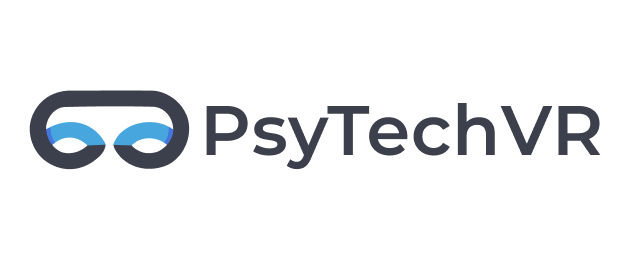Blog - COMPANY LIFE
PsyTechVR vs XRHealth
(Amelia Virtual Care): Virtual Reality Therapy Comparison Guide
(Amelia Virtual Care): Virtual Reality Therapy Comparison Guide
By Daniel Andreev, Chief Product Officer at PsyTech VR
June 31, 2025
What is PsyTechVR and How Does It Work?
PsyTechVR is a professionally designed, AI-powered virtual reality therapy platform helping mental health professionals to provide evidence-based treatments using immersive, controlled virtual environments. Unlike consumer-oriented VR applications, PsyTech VR is designed specifically for therapeutic use in clinical settings – combining exposure therapy, mindfulness interventions, and Cognitive Behavioral Therapy (CBT) or Exposure and Response Prevention (ERP) with real-time biometric monitoring. In 2024, PsyTechVR has extended the list of modalities, offering Eye Movement Desensitization and Reprocessing (EMDR) in VR, combining exposure therapy and Bilateral stimulation (BLS), which has also shown the demand for therapists offering Brainspotting or Eye Movement Release (EMR).
PsyTech VR aims to address specific mental health conditions, such as phobias (agora-, social-, and specific phobias), Generalized Anxiety, PTSD, OCD, Addictions, Anger, and Depression recovery using structured, evidence-based protocols with room for customization for individual patient needs.
PsyTech VR aims to address specific mental health conditions, such as phobias (agora-, social-, and specific phobias), Generalized Anxiety, PTSD, OCD, Addictions, Anger, and Depression recovery using structured, evidence-based protocols with room for customization for individual patient needs.
PsyTechVR's Core Technology and Treatment Approach
The therapeutic framework of PsyTechVR is comprised of three core components:
Treatment methodology of the platform combines multiple well-established approaches:
- Specialized VR hardware
- Clinical-grade VR software & protocols
- Real-time biometric monitoring systems
Treatment methodology of the platform combines multiple well-established approaches:
- Exposure therapy and Exposure and Response Prevention (ERP) for phobias and obsessive-compulsive disorder (OCD)
- CBT techniques for anxiety management
- EMDR (Eye Movement Desensitization and Reprocessing) for trauma processing
- Mindfulness protocols for stress reduction
- Behavioral modification techniques for addiction recovery
Key Features of PsyTechVR
PsyTechVR offers an abundance of features in its specialization, with some of the most notable examples being presented below.
Clinical Scenario Library
A range of evidence-based therapeutic scenarios targeting phobias (agora-, social-, and specific), generalized anxiety, PTSD, OCD, substance use disorders, and anger recovery. Each scenario can also be customized with graduated exposure levels and customization options, all of which are adjusted based on individual treatment plans.
Medical-Grade Biometric Monitoring
Biometric sensors (U.S. Patent Granted: 20230320643-A1) track heart rate, galvanic skin response, eye tracking, and movement patterns – all of which offer quantifiable stress response measurements with objective indicators of treatment effectiveness.
Learning Platform
The integrated educational platform offers structured courses, assessments, and certification programs for therapists. The Learning Platform includes evidence-based training modules about VR therapy protocols, as well as interactive quizzes and even progress tracking with completion certificates. It is a professional-grade system that prepares users for effective implementation of VR therapy while supporting continuous education.
Comprehensive Control Dashboard
Built-in dashboard called Launchpad allows for instant environment modification, stimulus control, scenario intensity adjustment, and direct patient communication while maintaining established parameters of clinical safety.
Advanced Session Analytics
Analytical information is aggregated using Dashboards with detailed reports such as patient response patterns, physiological trends, and progress metrics that can integrate with electronic health record systems to create treatment plans based on factual evidence.

Enterprise Hardware Compatibility
PsyTechVR’s software supports a range of VR systems, including Meta Quest 2, 3, 3s, HTC Vive Pro, Pico 4 Ultra, Pico 3 and specialized medical VR hardware that allows practices to choose equipment that meets specific clinical requirements. Therapist’s dashboard can be installed both on Windows and Apple Mac laptops.
MindGap AI Technology
AI-powered personalization engine allows for the creation of custom VR therapeutic environments in 30 seconds with nothing but simple text prompts. Therapists gain the ability to generate personalized exposure scenarios tailored to each client exposure case (phobia, PTSD, OCD, addiction, etc.), but also Safe Place relaxation environments, and manifestation experiences tailored to the needs of individual patients. The system automatically improves upon basic prompts to create detailed, realistic therapeutic scenarios with custom sounds, lighting, and a variety of immersive elements.
GDPR and HIPAA Compliance Framework
Multi-jurisdictional privacy protection ensures comprehensive data security across both European and American healthcare regulations. The platform implements GDPR-compliant data processing for European users while maintaining full HIPAA compliance for US healthcare providers. End-to-end encryption, secure cloud architecture, and granular consent management offer enterprise-level security for therapeutic information.
Group Therapy Support
PsyTech VR easily handles group therapy sessions with up to 20 participants, which allows therapists to manage multiple users at the same time, be it in relaxation practices or exposure therapy sequences.
PsyTechVR Therapy tool and Medical Use Cases
PsyTechVR is used by mental health professionals to deliver targeted therapeutic interventions across major mental health conditions using clinically validated virtual reality protocols. Healthcare providers report measurable treatment outcomes from these interventions, including reduced symptom severity, improved patient engagement, and accelerated therapy timelines.
The platform serves several main therapeutic applications:
The platform serves several main therapeutic applications:
- Systematic exposure protocols for anxiety and phobias
- Trauma processing interventions for PTSD
- Behavioral modification programs for recovering from an addiction
- Obsessive-compulsive disorder (OCD) treatment protocols
- Mindfulness and stress reduction interventions
Anxiety and Phobia Treatment Applications
Group Therapy Support
Comprehensive exposure therapy using PsyTechVR’s library of 150+ prebuilt phobia scenarios, including protocols for systematic desensitization with gradual exposure intensity based on patient tolerance levels. The extensive collection of scenarios addresses both common and unusual phobias using evidence-based therapeutic approaches.
Examples from the comprehensive phobia library include, but not exclusive to:
Examples from the comprehensive phobia library include, but not exclusive to:
- acrophobia (heights)
- arachnophobia (spiders)
- aviophobia (flying)
- claustrophobia (enclosed spaces)
- agoraphobia (public spaces)
- trypanophobia (needles and injections)
- germophobia (bacteria and contamination)
- nyctophobia (darkness)
- mysophobia (dirt and uncleanliness)
- entomophobia (insects)
Social Anxiety Interventions
Virtual scenarios simulate job interviews, public speaking, social gatherings, and workspace interactions where patients can practice social skills. Avatar-based social situations include realistic social cues and adjustable difficulty levels for confidence building.
Generalized Anxiety Management
Immersive mindfulness environments with relaxation techniques and breathing exercises help develop anxiety management skills. Virtual settings include calming nature scenes and guided meditation spaces accessible during acute episodes.
Panic Disorder Treatment
Simulates physical sensations and environmental triggers associated with panic attacks, which allows for supervised practice of grounding techniques and cognitive restructuring in crowded spaces and other potentially panic-inducing environments.
Obsessive-Compulsive Disorder Treatment
Specialized OCD protocols including exposure and response prevention (ERP) therapy within controlled virtual environments. Customizable contamination, checking, and symmetry scenarios support comprehensive OCD treatment approaches with gradual exposure levels custom-fit to individual compulsion patterns when necessary.
PTSD and Trauma Therapy Use Cases
Combat-Related PTSD
Battlefield scenarios, convoy situations, and combat environments are created using graduated exposure protocols designed specifically for treating post-traumatic stress disorder (PTSD). Customizable military settings are adjusted based on individual deployment experiences and known trauma triggers.
Motor Vehicle Accident Recovery
Virtual driving scenarios with intersection navigation and highway situations assist in rebuilding confidence while reducing avoidance behaviors. Progressive exposure helps patients distinguish between trauma-based fear responses and actual danger.
Sexual Assault and Domestic Violence Recovery
Therapeutic environments for assertiveness training, boundary setting, and safety planning within controlled virtual contexts in support of traditional therapy approaches.
Childhood Trauma Processing
Age-appropriate virtual environments enable trauma memory reprocessing via narrative therapy techniques and EMDR (Eye Movement Desensitization and Reprocessing) integration in neutral therapeutic spaces.
AI+VR for tailored PTSD exposure
PsyTechVR provides the AI exposure generation tool, which is capable of creating any PTSD scenario with a text prompt. An immersive VR scenario comes with high-realistic graphics, sound triggers and visual effects to achieve therapeutic needs providing tailored exposure, generated under 30 seconds.
Addiction Recovery and Behavioral Health Programs
Substance Use Disorder Treatment
Cue exposure therapy in virtual parties, bars, and other high-risk environments while teaching refusal skills and craving management. Patients practice recovery strategies when presented with alcohol, drug, or smoking triggers.
Gambling Addiction Recovery
Virtual casino environments and online gambling simulations, with the goal of developing impulse control strategies and recognizing gambling triggers while forming alternative coping mechanisms.
Eating Disorder Support
Virtual food environments and body image therapy modules addressing distorted perceptions and food-related anxiety using healthy eating behaviors, portion recognition, and various techniques for body acceptance.
Behavioral Addiction Treatment
Programs for gaming addictions, internet addictions, and modification of compulsive behavior with virtual environments, practicing self-regulation skills, time management, and alternative activities that are more healthy in nature.
What is XRHealth (Amelia Virtual Care) and How Does It Compare?
XRHealth is a comprehensive VR healthcare platform combining immersive XR technology and clinical-grade therapeutic interventions across multiple medical specialties. Following its 2024 merger with Amelia Virtual Care (developed in 2013), XRHealth has become a full-spectrum digital therapeutics ecosystem with pain management, physical rehabilitation, cognitive assessment, and mental health treatment options.
Unlike single-focus VR therapy platforms, XRHealth works as an integrated healthcare delivery system connecting patients, providers, and healthcare organizations using FDA-registered virtual reality applications and comprehensive care coordination services. Its main approach centers on medical-grade VR applications, clinical data integration, and provider workflow optimization instead of standalone therapy tools, which positions it as a comprehensive healthcare technology solution for companies that implement virtual reality methods across multiple clinical disciplines.
It should also be noted that XRHealth’s therapeutic model includes direct provision of licensed therapists alongside VR technology, offering end-to-end therapy services instead of simple platform access. The platform emphasizes occupational therapy applications and physical rehabilitation, extending beyond the borders of mental health into the field of motor function recovery, workplace injury treatment, spinal cord injury rehabilitation, etc. A full-service approach offers immediate access to licensed professionals but may limit flexibility for organizations and environments with their own therapeutic staff. Occupational therapy, on the other hand, goes beyond traditional mental health applications, making it unnecessary for certain use cases.
Unlike single-focus VR therapy platforms, XRHealth works as an integrated healthcare delivery system connecting patients, providers, and healthcare organizations using FDA-registered virtual reality applications and comprehensive care coordination services. Its main approach centers on medical-grade VR applications, clinical data integration, and provider workflow optimization instead of standalone therapy tools, which positions it as a comprehensive healthcare technology solution for companies that implement virtual reality methods across multiple clinical disciplines.
It should also be noted that XRHealth’s therapeutic model includes direct provision of licensed therapists alongside VR technology, offering end-to-end therapy services instead of simple platform access. The platform emphasizes occupational therapy applications and physical rehabilitation, extending beyond the borders of mental health into the field of motor function recovery, workplace injury treatment, spinal cord injury rehabilitation, etc. A full-service approach offers immediate access to licensed professionals but may limit flexibility for organizations and environments with their own therapeutic staff. Occupational therapy, on the other hand, goes beyond traditional mental health applications, making it unnecessary for certain use cases.
Key Features of XRHealth
XRHealth provides a wide range of features within its scope of capabilities, confirming its status as an integrated healthcare delivery system.
FDA-Registered Medical Applications
XRHealth has FDA-registered VR therapeutics for pain management, anxiety reduction, and rehabilitation protocols. These are cleared medical devices that ensure regulatory compliance with insurance reimbursement eligibility for healthcare providers implementing VR therapy programs.
Multi-Specialty Clinical Modules
The platform offers specialized applications for pain management, cognitive rehabilitation, physical therapy, occupational therapy, and behavioral health. Each module includes condition-specific protocols that were developed with medical specialists and thoroughly validated using clinical trials.
Enterprise Healthcare Integration
Direct EHR (Electronic Health Record) integration with Epic, Cerner, and major healthcare information systems creates opportunities for seamless clinical workflow integration. Patient data, treatment outcomes, and progress metrics populate existing medical records automatically without the need for additional documentation burden.
Clinical Analytics Dashboard
Healthcare administrators can use XRHealth to access population health analytics, treatment outcome metrics, and resource utilization across all VR therapy programs. Such enterprise-level reporting supports quality improvement initiatives and value-based care contracts.
Provider Training and Certification
Comprehensive clinician education programs assist in ensuring proper VR therapy implementation across different medical specialties. Dedicated training modules include clinical protocols, safety procedures, and outcome measurement techniques that are specific to each application.
Scalable Deployment Infrastructure
Cloud-based platform architecture of the solution supports large-scale healthcare system implementations with centralized management, remote monitoring, and technical support services. Organizations have the ability to deploy VR therapy across multiple locations using a unified administration interface.
Therapy and Medical Use Cases with XRHealth
Total range of potential use cases for XRHealth environment is separated into five large groups:
- Chronic pain management:
- Immersive distraction therapy
- Mindfulness-based pain reduction
- Cognitive behavioral therapy for chronic pain
- Physical rehabilitation programs:
- Motor function recovery
- Spinal cord injury recovery
- Balance training for fall prevention
- Cognitive assessment and training:
- Neuropsychological evaluation tools
- Cognitive rehabilitation programs (dementia care, traumatic brain injury, attention deficit disorders)
- Perioperative anxiety reduction:
- Pre-surgical anxiety management
- Procedural preparation simulations
- Pediatric medical procedures:
- Child-friendly distraction therapy during medical procedures
- Vaccination anxiety reduction
- Hospital stay comfort interventions
How the Merger Enhances XRHealth's Therapeutic Capabilities
The 2024 Amelia Virtual Care acquisition fundamentally changed XRHealth from a specialized VR therapy provider into a comprehensive ecosystem for digital therapeutics. This strategic merger combined XRHealth’s FDA-registered VR technology with Amelia’s established telehealth infrastructure and care coordination expertise, forming a unified platform capable of addressing the entire journey of patient care from start to finish.
Integrated care delivery now covers everything from initial patient assessment to treatment completion with outcome tracking. Where XRHealth previously focused on individual VR therapy sessions, the newly-merged entity can now offer end-to-end clinical workflows connecting primary care providers, specialists, and mental health professionals within shared treatment protocols. Tight-knit integration like this means patients are receiving coordinated care – a combination of virtual reality interventions and traditional telehealth services, medication management, and ongoing clinical support.
The most significant impact of the merger lies in advanced analytics and predictive modeling capabilities. Amelia’s care coordination data, combined with XRHealth’s VR therapy outcomes, results in the creation of comprehensive patient profiles that enable risk stratification and personalized treatment recommendations for every single patient. This information helps healthcare providers identify which patients are most likely to benefit from VR interventions, along with predicting treatment response rates and adjusting therapy protocols using real-world clinical data.
Integrated care delivery now covers everything from initial patient assessment to treatment completion with outcome tracking. Where XRHealth previously focused on individual VR therapy sessions, the newly-merged entity can now offer end-to-end clinical workflows connecting primary care providers, specialists, and mental health professionals within shared treatment protocols. Tight-knit integration like this means patients are receiving coordinated care – a combination of virtual reality interventions and traditional telehealth services, medication management, and ongoing clinical support.
The most significant impact of the merger lies in advanced analytics and predictive modeling capabilities. Amelia’s care coordination data, combined with XRHealth’s VR therapy outcomes, results in the creation of comprehensive patient profiles that enable risk stratification and personalized treatment recommendations for every single patient. This information helps healthcare providers identify which patients are most likely to benefit from VR interventions, along with predicting treatment response rates and adjusting therapy protocols using real-world clinical data.
End-to-End XR Therapeutics: Infrastructure, Privacy, and Integration
The primary goal behind the merger was to create an “XR therapeutic powerhouse” – an enhanced therapeutic ecosystem that works on enterprise-grade infrastructure designed specifically for healthcare delivery purposes at scale. The HIPAA-compliant cloud architecture of the merged platform supports seamless integration with existing healthcare technology environments while maintaining all of the necessary security standards for processing sensitive patient-related information.
Clinical workflow integration reflects the core value proposition of the merger: giving healthcare providers the ability to prescribe VR therapy, monitor patient progress, and coordinate with other specialists using a unified interface that is connected directly to Epic, Cerner, or other major EHR systems. Compliance with HL7 FHIR (Health Level 7 Fast Healthcare Interoperability Resources) ensures that patient data can flow in both directions without creating additional documentation burdens or workflow disruptions for healthcare teams.
Quality assurance operates using standardized clinical protocols capable of leveraging both companies’ expertise at once. The merger allows for the creation of consistent treatment delivery across many different healthcare settings. Such standardization effort assists healthcare organizations in implementing VR therapy programs with confidence in both clinical outcomes and regulatory compliance.
The technical support infrastructure of the platform reflects this end-to-end approach as well, offering implementation planning, staff training, and ongoing optimization services that address both clinical care delivery and VR technology deployment. Instead of managing separate vendors for VR therapy and telehealth services, healthcare systems can now work with the same integrated provider that has a clear understanding of the complete patient care ecosystem.
Clinical workflow integration reflects the core value proposition of the merger: giving healthcare providers the ability to prescribe VR therapy, monitor patient progress, and coordinate with other specialists using a unified interface that is connected directly to Epic, Cerner, or other major EHR systems. Compliance with HL7 FHIR (Health Level 7 Fast Healthcare Interoperability Resources) ensures that patient data can flow in both directions without creating additional documentation burdens or workflow disruptions for healthcare teams.
Quality assurance operates using standardized clinical protocols capable of leveraging both companies’ expertise at once. The merger allows for the creation of consistent treatment delivery across many different healthcare settings. Such standardization effort assists healthcare organizations in implementing VR therapy programs with confidence in both clinical outcomes and regulatory compliance.
The technical support infrastructure of the platform reflects this end-to-end approach as well, offering implementation planning, staff training, and ongoing optimization services that address both clinical care delivery and VR technology deployment. Instead of managing separate vendors for VR therapy and telehealth services, healthcare systems can now work with the same integrated provider that has a clear understanding of the complete patient care ecosystem.
PsyTechVR vs XRHealth:
Which Excels in Therapist Control?
Therapist control is one of several fundamental differences between PsyTech VR’s specialized therapy and XRHealth’s comprehensive healthcare delivery model. PsyTechVR prioritizes granular control over therapeutic processes, with real-time session manipulation capabilities designed specifically for highly personalized therapy sessions between a patient and a mental health specialist. XRHealth puts a heavy emphasis on clinical workflow integration and care coordination across different healthcare providers, with clinical session control being embedded into broader healthcare delivery protocols.
Service delivery models also present a fundamental difference between the two platforms. PsyTechVR works as a technology platform that mental health professionals use independently, while XRHealth works as a service provider with their own licensed therapists and direct interactions with patients alongside VR technology provision.
Service delivery models also present a fundamental difference between the two platforms. PsyTechVR works as a technology platform that mental health professionals use independently, while XRHealth works as a service provider with their own licensed therapists and direct interactions with patients alongside VR technology provision.
Customization and Personalization:
PsyTechVR vs XRHealth
Customization Capabilities of PsyTechVR
PsyTech VR’s customization options revolve around real-time therapeutic control during active therapy sessions. Mental health professionals have the ability to instantly change virtual environments, adjusting stimulus intensity while introducing or removing therapeutic elements based on patient responses.
The platform’s gradual control interface provides therapists with highly accurate manipulation capabilities of environmental factors such as lighting conditions, audio cues, virtual characters, and scenario complexity. This level of customization greatly assists flexible therapeutic approaches where experienced therapists can adapt evidence-based protocols to individual patient presentations and therapeutic relationships.
PsyTechVR is offering a unique MindGap AI product – the Artificial Intelligence for detailed customization of any VR exposure scenarios or safe place relaxation environments, with a therapist’s control over a client’s VR headset via laptop dashboard.
The platform’s gradual control interface provides therapists with highly accurate manipulation capabilities of environmental factors such as lighting conditions, audio cues, virtual characters, and scenario complexity. This level of customization greatly assists flexible therapeutic approaches where experienced therapists can adapt evidence-based protocols to individual patient presentations and therapeutic relationships.
PsyTechVR is offering a unique MindGap AI product – the Artificial Intelligence for detailed customization of any VR exposure scenarios or safe place relaxation environments, with a therapist’s control over a client’s VR headset via laptop dashboard.
Personalization Approach of XRHealth
Personalization capabilities of XRHealth work within structured clinical protocols that healthcare providers can easily customize within established therapeutic parameters. Instead of offering real-time session control, XRHealth delivers treatment plan personalization with the help of comprehensive patient assessment tools and algorithm-driven therapy recommendations derived from treatment history and clinical data.
The customization capabilities of the solution focus on care pathway optimization across multiple healthcare providers. Primary care physicians, specialists, and therapists can coordinate personalized treatment plans – a combination of VR therapy with other medical interventions to create integrated care experiences capable of addressing complex patient needs via multiple therapeutic modalities. It is a systematic approach to personalization that supports population health management and value-based care delivery models.
The customization capabilities of the solution focus on care pathway optimization across multiple healthcare providers. Primary care physicians, specialists, and therapists can coordinate personalized treatment plans – a combination of VR therapy with other medical interventions to create integrated care experiences capable of addressing complex patient needs via multiple therapeutic modalities. It is a systematic approach to personalization that supports population health management and value-based care delivery models.
Remote Therapy Options: PsyTechVR vs XRHealth
Remote Capabilities of PsyTechVR
PsyTech VR’s remote therapy capabilities maintain the platform’s strong emphasis on direct therapist-patient interaction using telehealth-enabled VR sessions where mental health professionals can guide patients through VR experiences remotely while keeping full control over session parameters, environmental modifications, and therapeutic interventions.
Remote session capabilities include secure video communication integrated with VR therapy delivery, enabling therapists to observe patient responses while offering verbal guidance and adjusting approaches in real-time without disrupting traditional therapeutic relationships.
Therapists can offer clients a continuous VR sessions.
Remote session capabilities include secure video communication integrated with VR therapy delivery, enabling therapists to observe patient responses while offering verbal guidance and adjusting approaches in real-time without disrupting traditional therapeutic relationships.
Therapists can offer clients a continuous VR sessions.
Remote Therapy with XRHealth
Remote delivery model of XRHealth integrates VR therapy in comprehensive telehealth care coordination connecting patients with different healthcare providers using unified care plans. There is a strong emphasis on care continuity and outcome tracking across multiple healthcare encounters instead of individual therapy sessions.
Patients receive VR therapy as part of a broader treatment plan with primary care follow-up, specialist consultations, and care coordination support – forming a seamless healthcare experience capable of addressing both immediate therapeutic needs and long-term health management goals of each patient.
Patients receive VR therapy as part of a broader treatment plan with primary care follow-up, specialist consultations, and care coordination support – forming a seamless healthcare experience capable of addressing both immediate therapeutic needs and long-term health management goals of each patient.
Session Monitoring and Data Tracking in PsyTechVR and XRHealth
Tracking and Monitoring in PsyTechVR
The approach that PsyTech VR takes toward monitoring relies on comprehensive biometric tracking in active therapy sessions with real-time data visualization for therapists – with continuous monitoring of parameters such as heart rate variability, galvanic skin response, and movement patterns, all of which are displayed using therapist dashboards for immediate therapeutic adjustments when objective physiological indicators point toward it.
Session data integrates into detailed therapy reports that are used to track patient progress during multiple sessions, with behavioral observations, physiological response patterns, and therapeutic milestones supporting treatment planning optimization and detailed documentation for clinical decision-making or insurance authorization.
Session data integrates into detailed therapy reports that are used to track patient progress during multiple sessions, with behavioral observations, physiological response patterns, and therapeutic milestones supporting treatment planning optimization and detailed documentation for clinical decision-making or insurance authorization.
XRHealth and Data Tracking
XRHealth’s data tracking operates using enterprise-level analytics that aggregate patient outcomes across entire healthcare populations, with the primary value of the platform being its population health insights and treatment outcome analyses across multiple healthcare settings – which is a stark contrast to individual session monitoring.
Healthcare organizations gain access to administrative dashboards that show:
Healthcare organizations gain access to administrative dashboards that show:
- VR therapy effectiveness
- Patient engagement rates
- Clinical outcome improvements across their patient populations
Feature Comparison Table for PsyTechVR and XRHealth
A side-by-side comparison table helps provide a more upfront comparison between the two options:
PsyTechVR vs XRHealth:
Hardware Compatibility
Hardware compatibility is a strategic difference between PsyTech VR and XRHealth – a dramatic difference between a flexible device approach and an enterprise-standardized infrastructure.
PsyTech VR works with multiple consumer and professional VR headsets, including Meta Quest 2, 3, 3s, Pro, and Pico 4, Pico 4 ultra, Pico neo 3, and HTC Vive Pro, HTC XR Elite which enables healthcare practices to implement VR therapy measures using existing equipment or choose systems based on their specific requirements in terms of budget or performance.
XRHealth emphasizes standardized enterprise hardware deployments, using certified medical-grade VR systems to provide consistent performance and regulatory compliance across a wide range of healthcare organizations.
The hardware strategies of both platforms clearly showcase their primary target markets – with PsyTech VR enabling mental health professionals, educational institutions, and organizations to adopt immersive therapeutic sessions without substantial infrastructure investments, while XRHealth is a much more sophisticated option for large healthcare companies due to its system-wide coverage, standardized equipment, centralized management, and comprehensive technical support.
PsyTech VR works with multiple consumer and professional VR headsets, including Meta Quest 2, 3, 3s, Pro, and Pico 4, Pico 4 ultra, Pico neo 3, and HTC Vive Pro, HTC XR Elite which enables healthcare practices to implement VR therapy measures using existing equipment or choose systems based on their specific requirements in terms of budget or performance.
XRHealth emphasizes standardized enterprise hardware deployments, using certified medical-grade VR systems to provide consistent performance and regulatory compliance across a wide range of healthcare organizations.
The hardware strategies of both platforms clearly showcase their primary target markets – with PsyTech VR enabling mental health professionals, educational institutions, and organizations to adopt immersive therapeutic sessions without substantial infrastructure investments, while XRHealth is a much more sophisticated option for large healthcare companies due to its system-wide coverage, standardized equipment, centralized management, and comprehensive technical support.
User Experience with PsyTech VR
The user experience in PsyTech VR prioritizes intuitive therapist control interfaces and streamlined dashboards that can be mastered quickly by mental health professionals without extensive technical training. That way, therapists focus on therapeutic relationships a lot faster instead of spending extra time managing technological matters.
Flexible hardware compatibility of the platform allows practices to choose from a range of VR headsets with different comfort levels, clinical requirements, and budget constraints – with the consistent software performance being guaranteed in all device types. Patients experience comfortable, clinical-grade VR sessions with headsets that were selected specifically for therapeutic use, including hygiene protocols and comfort features designed for extended therapy sessions.
Flexible hardware compatibility of the platform allows practices to choose from a range of VR headsets with different comfort levels, clinical requirements, and budget constraints – with the consistent software performance being guaranteed in all device types. Patients experience comfortable, clinical-grade VR sessions with headsets that were selected specifically for therapeutic use, including hygiene protocols and comfort features designed for extended therapy sessions.
XRHealth:
Patient and Therapist Perspectives on Usability
XRHealth’s user experience is focused a lot more on standardized clinical workflows, integrating VR therapy seamlessly into existing healthcare delivery processes. Its provider interfaces are designed for efficiency across multiple medical specialties and care coordination requirements for the optimal experience.
The platform’s enterprise hardware standardization ensures consistency in patient experiences across different healthcare locations using medical-grade VR systems that meet clinical safety standards while offering reliable performance for population health programs. Healthcare administrators benefit greatly from these setups due to the ability to have access to centralized device management, remote monitoring capabilities, and comprehensive technical support to reduce IT burden while ensuring optimal system performance in various large-scale deployments.
The platform’s enterprise hardware standardization ensures consistency in patient experiences across different healthcare locations using medical-grade VR systems that meet clinical safety standards while offering reliable performance for population health programs. Healthcare administrators benefit greatly from these setups due to the ability to have access to centralized device management, remote monitoring capabilities, and comprehensive technical support to reduce IT burden while ensuring optimal system performance in various large-scale deployments.
Pricing Structures: PsyTech VR vs XRHealth
Pricing models reflect the target market approach of each platform, with PsyTech VR focusing on flexible subscription plans for a diverse range of organizations (individual mental health practices, universities, corporate wellness programs, and large organizations). XRHealth, on the other hand, offers enterprise-level pricing structures targeting primarily healthcare systems and large organizations. Cost considerations in both cases extend far beyond basic licensing fees to also include:
- implementation support
- hardware requirements
- training costs
- ongoing technical assistance
Individual Practice vs Enterprise Pricing
PsyTech VR serves a diverse range of organizational needs with its pricing structure, targeting mental health professionals, educational institutions, and healthcare organizations with its subscription-based licensing model, allowing for the implementation of VR therapy practices without substantial upfront capital.
Flexible hardware compatibility of the platform enables practices to choose VR equipment based on budget constraints from consumer-grade headsets to professional clinical systems, creating scalable entry points for different practice sizes and financial capabilities.
XRHealth and its enterprise pricing focuses more on healthcare system-wide implementations with custom pricing structures based on number of providers, patient volume, and integration complexity.
The standardized enterprise hardware approach of the platform requires coordinated procurement and deployment efforts across multiple locations, creating higher initial investment requirements with potentially lower per-unit costs for large-scale implementations using volume pricing agreements and centralized management efficiencies.
Flexible hardware compatibility of the platform enables practices to choose VR equipment based on budget constraints from consumer-grade headsets to professional clinical systems, creating scalable entry points for different practice sizes and financial capabilities.
XRHealth and its enterprise pricing focuses more on healthcare system-wide implementations with custom pricing structures based on number of providers, patient volume, and integration complexity.
The standardized enterprise hardware approach of the platform requires coordinated procurement and deployment efforts across multiple locations, creating higher initial investment requirements with potentially lower per-unit costs for large-scale implementations using volume pricing agreements and centralized management efficiencies.
Insurance Reimbursement and Payment Options
Reimbursement approach of PsyTech VR operates within pre-existing mental health therapy billing frameworks, with VR sessions being usually billed as standard psychotherapy services using established CPT (Current Procedural Terminology) codes. This enables practices to seek reimbursement through traditional mental health coverage without specialized pre-authorization for VR technology use. That way, the implementation speed is greatly improved in the context of existing billing practices, but it may also limit reimbursement rates down to just standard therapy session fees.
XRHealth’s insurance coverage combines direct billing capabilities for VR therapy services with in-network provider status with major insurance companies, which has potential for improved reimbursement rates for FDA-registered medical applications. The fact that the platform supports medical device classification and clinical documentation with specialized billing codes and pre-authorization processes can result in higher reimbursement rates but would also require for a lot more complex administrative coordination between healthcare organizations and insurance providers.
XRHealth’s insurance coverage combines direct billing capabilities for VR therapy services with in-network provider status with major insurance companies, which has potential for improved reimbursement rates for FDA-registered medical applications. The fact that the platform supports medical device classification and clinical documentation with specialized billing codes and pre-authorization processes can result in higher reimbursement rates but would also require for a lot more complex administrative coordination between healthcare organizations and insurance providers.
ROI and Value Analysis for Healthcare Organizations
PsyTech VR’s value proposition centers on improved therapeutic outcomes and increased patient engagement capable of leading to improved treatment effectiveness, reduced session frequency, and higher patient satisfaction scores supporting practice growth. Lower implementation costs and flexible deployment enable rapid ROI achievement via increased therapy capacity and differentiated service offerings attracting patients seeking innovative mental health treatments.
XRHealth’s ROI model emphasizes population health management with care coordination efficiencies, supporting value-based care contracts, reduced readmission rates, and improved clinical outcomes. Healthcare systems benefit greatly from:
XRHealth’s ROI model emphasizes population health management with care coordination efficiencies, supporting value-based care contracts, reduced readmission rates, and improved clinical outcomes. Healthcare systems benefit greatly from:
- Standardized protocols
- Comprehensive analytics
- Care team coordination
PsyTech VR vs XRHealth: Final Thoughts
Selecting between PsyTech VR and XRHealth depends on organizational size, clinical focus, and implementation objectives, instead of one platform being absolutely superior over the other.
PsyTech VR excels for mental health-focused practices seeking granular therapeutic control and flexible implementation options but can also work on a larger scale for healthcare companies or universities. XRHealth serves complex healthcare systems specifically – the ones that necessitate comprehensive digital therapeutics integration across multiple medical specialties, be it occupational therapy, physical rehabilitation, direct therapist provision, etc. Knowledge about their fundamental differences guides appropriate platform selection for specific patient populations and organizational needs.
PsyTech VR excels for mental health-focused practices seeking granular therapeutic control and flexible implementation options but can also work on a larger scale for healthcare companies or universities. XRHealth serves complex healthcare systems specifically – the ones that necessitate comprehensive digital therapeutics integration across multiple medical specialties, be it occupational therapy, physical rehabilitation, direct therapist provision, etc. Knowledge about their fundamental differences guides appropriate platform selection for specific patient populations and organizational needs.
Which Platform Fits Different Practice Types?
Wide Range of Mental Health Practices
Mental health professionals, small to large prictices, hospitals, colleges and universities, and corporate wellness programs benefit from PsyTechVR’s specialized therapy approach, with its intuitive therapist oversight interfaces, flexible hardware compatibility, and mental health-specific scenarios designed for individual therapy sessions.
The lower implementation costs of the platform, along with affordable subscription-based pricing, enable rapid deployment without substantial capital investment, making it a great option for a variety of use cases, especially mental health practices that want to differentiate their services using innovative VR therapy offerings without losing traditional therapeutic relationships.
The lower implementation costs of the platform, along with affordable subscription-based pricing, enable rapid deployment without substantial capital investment, making it a great option for a variety of use cases, especially mental health practices that want to differentiate their services using innovative VR therapy offerings without losing traditional therapeutic relationships.
Large Healthcare Systems
Multi-specialty organizations, along with large healthcare environments, acquire greater value from XRHealth’s wide-scale deployment tools, including comprehensive analytics, standardized protocols, and care coordination across different specialties or providers.
FDA-registered applications of the platform, along with insurance network participation and population health management tools, support DME initiatives and Medicaid programs aligning with healthcare system strategic objectives and regulatory requirements.
FDA-registered applications of the platform, along with insurance network participation and population health management tools, support DME initiatives and Medicaid programs aligning with healthcare system strategic objectives and regulatory requirements.
Key Decision Factors for Healthcare Organizations
Three primary factors determine optimal platform selection for a healthcare organization with the goal of implementing VR therapy programs:
- Clinical Focus Requirements: Organizations that prioritize intensive mental health therapy with real-time therapeutic control would find more use in PsyTech VR, while the ones seeking broad digital therapeutics integration across multiple medical specialties should consider XRHealth.
- Implementation Complexity: PsyTechVR provides simpler deployment with flexible hardware options, which is a great choice for smaller organizations and limited IT resources; XRHealth requires enterprise-level implementation with standardized hardware and dedicated IT support.
- Financial and Reimbursement Strategy: PsyTech VR supports traditional therapy billing in existing revenue cycles. XRHealth offers specialized medical device billing, which can result in improved reimbursement rates but also requires complex administrative coordination.
Key Takeaways
- PsyTechVR is the best pick for mental health practices that want granular therapeutic control and affordable, flexible implementation in individual practices, mental health-focused organizations, and universities
- XRHealth operates with large healthcare systems in mind, first and foremost, necessitating comprehensive digital therapeutics across a range of different specialties
- Platform selection depends on organization size and other factors
- Implementation complexity varies dramatically between enterprise integration and simple deployment
- Both platforms provide evidence-based VR therapy with different clinical objectives and organizational profiles in mind
- Success requires matching platform capabilities and specific practice requirements, going beyond feature-based comparisons
VR and Anxiety disorders
Frequently Asked Questions
Which platform is better for small to medium mental health practices?
PsyTechVR is better suited for smaller mental health practices due to its flexibility in terms of supported hardware, as well as lower implementation costs and specialized focus on mental health therapy. Its accessibility is improved by a combination of month to month subscription-based pricing and simplified deployment, removing the need for extensive IT infrastructure.
However, that is not to say that the platform cannot operate with bigger or more complex use cases, either – as shown by its full support of healthcare organizations, universities, and even HR-related corporate wellness programs.
However, that is not to say that the platform cannot operate with bigger or more complex use cases, either – as shown by its full support of healthcare organizations, universities, and even HR-related corporate wellness programs.
Does insurance cover VR therapy sessions on these platforms?
XRHealth works as an in-network provider with major insurance companies, offering FDA-registered medical applications that can qualify for enhancement reimbursement rates. PsyTechVR sessions are commonly billed with standard psychotherapy CPT codes via existing mental health coverage, which can reduce reimbursement rates.
Can these platforms be used for remote therapy sessions?
Both platforms have a certain degree of support for remote therapy, but their approaches differ to a certain degree.
PsyTechVR facilitates direct interactions between a therapist and a patient using telehealth-enabled VR sessions with real-time therapeutic control. A therapist can control an exposure or relaxation experience, but also a therapist and a client can be presented in any environment as avatars. PsyTechVR allows to control either one user or a group of users at the same time (up to 20 users simultaneously).
XRHealth integrates VR therapy within comprehensive telehealth care coordination that also includes multiple healthcare providers and ongoing care management outside of individual therapy sessions.
PsyTechVR facilitates direct interactions between a therapist and a patient using telehealth-enabled VR sessions with real-time therapeutic control. A therapist can control an exposure or relaxation experience, but also a therapist and a client can be presented in any environment as avatars. PsyTechVR allows to control either one user or a group of users at the same time (up to 20 users simultaneously).
XRHealth integrates VR therapy within comprehensive telehealth care coordination that also includes multiple healthcare providers and ongoing care management outside of individual therapy sessions.
| | Get in touch We're ready to lead you into the future of mental health Sending this information you agree to share your personal information according and limited by our confidentiality statement. |

Welcome!
We're excited to offer you the chance to experience the power of PsyTech VR with a FREE Trial!




 PsyTechVR
PsyTechVR


